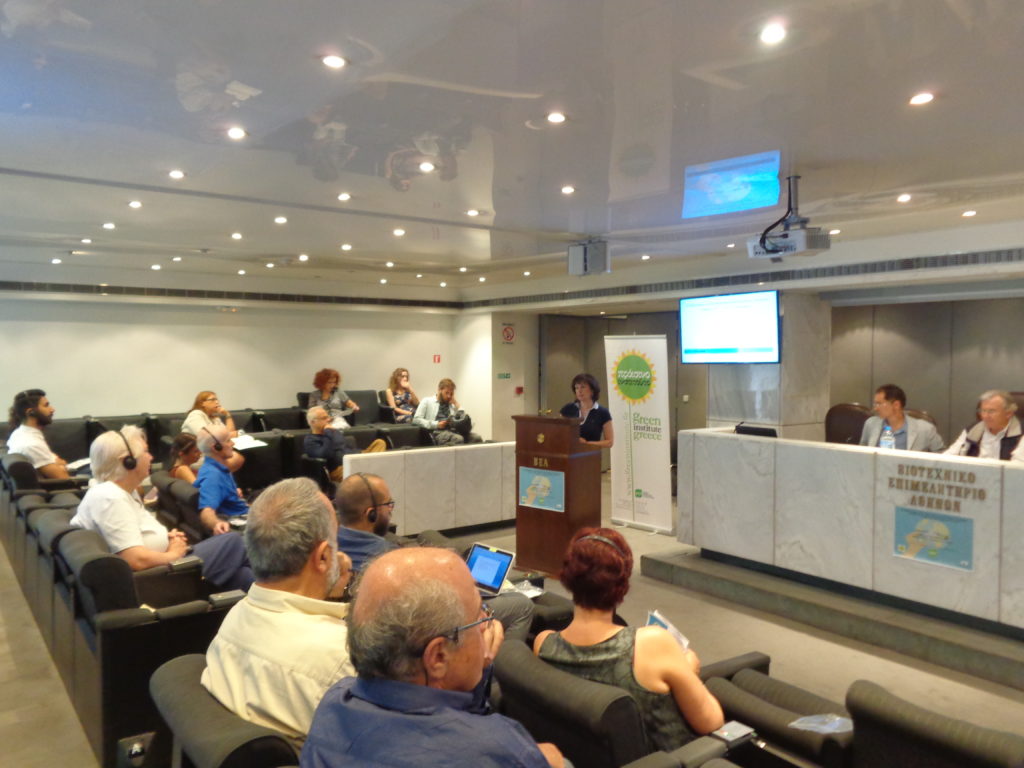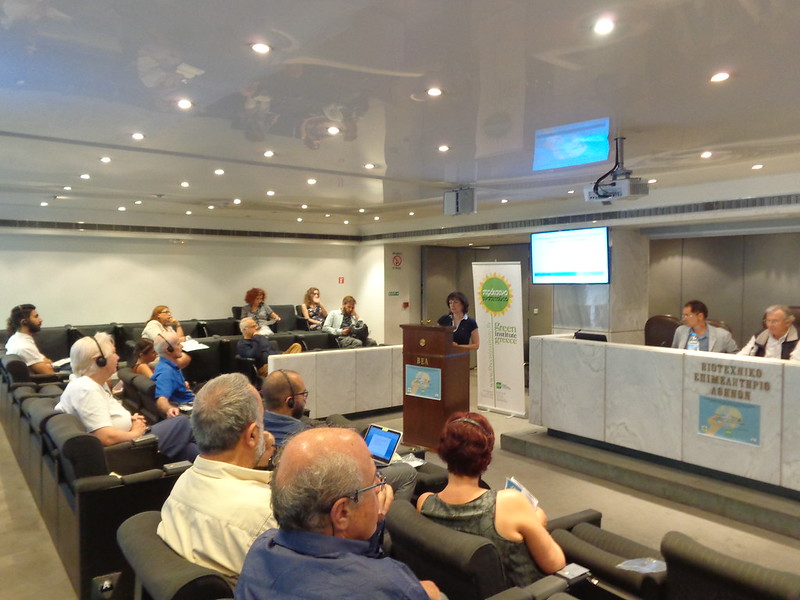On Saturday September 24 our conference entitled “Refugees in Europe of closed borders – Political and social dimensions of the refugee problem at Greek and European level” was held in the hall of the Industrial Chamber of Athens (BEA). This event took place in the framework of the European program “Policies for the refugee and immigration issue” and was organized by the Green European Foundation with the support of Green Institute, Greece.
At a time when the refugee crisis continues to test the resilience of the humanitarian reflexes of the West, but especially the human limits of the millions of refugees fleeing their homes (at a rate and duration which have been described by experts as the worst humanitarian crisis since the World War II), the examination and evaluation of the position of Western countries is necessary both in terms of peace initiatives as well as in providing first level care to survivors of wars.
While the humanitarian crisis peaks and the structures that Greek is capable of sustaining, acting in a direction to relieve the ‘wounds’ of victims of war, is literally poor, the assurances of assistance in humanitarian work by the international community seem evasive. Recognizing the valiant efforts of understaffed structures, Greece entrusts in NGOs most of the care provided to refugees, often with processes that raise questions. Greece is the first EU country that receives refugees who are on their voyage to their final destination in Western Europe. However, after the closure of borders decided by countries in the ‘Visegrad group’, refugees are ‘locked in’ and cannot leave Greece.
Many important issues and questions were raised, including: “Is the EU-Turkey Agreement a necessary compromise or a retreat at the expense of human rights? Following the latest developments, does Turkey constitute a reliable partner for the EU? Are the ‘Visegrad’ countries ‘fortified’ against the refugee flow. Are there any alternative policies? Is the Relocation and Resettlement Plan: an effective political tool or EU’s double talk? Which initiatives should be adopted at national and European level? Also discussed: Turkey and Treaty of Geneva, Greece: Reconsideration of the framework of the Treaty of Dublin, A Common European Asylum Service, An evaluation of the European peace initiative, Europe’s approach towards the refugees. And, what is Europe’s and Greece’s potential to host refugees? Examples of self-organized refugee care structures. Relocation prospects for refugees in EU countries. NGOs and volunteer groups and the ‘disabled’ Greek State. Challenges and recommendations for a more effective coordination.” These were some of the questions that speakers were asked to respond to. The participating Organizations included the Asylum Service, the Greek Union for Human Rights, Amnesty International, the Hellenic Red Cross, and the Immigrant Integration Council of the Municipality of Athens. In addition, speakers from the Green European Foundation, Green Institute, Greece, representatives of the Greek parliament and the EU Parliament, representatives of the Ecologists Greens (Greek Green party) K.E.E.R.F.A., the Architects Association, the Pampeiraiki Initiative, the NGO PRAKSIS and volunteers from Doctors of the World all took part in the discussion.
* The event was co-funded by the European Parliament.


